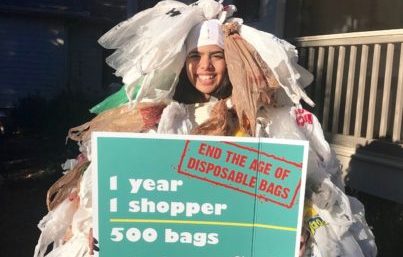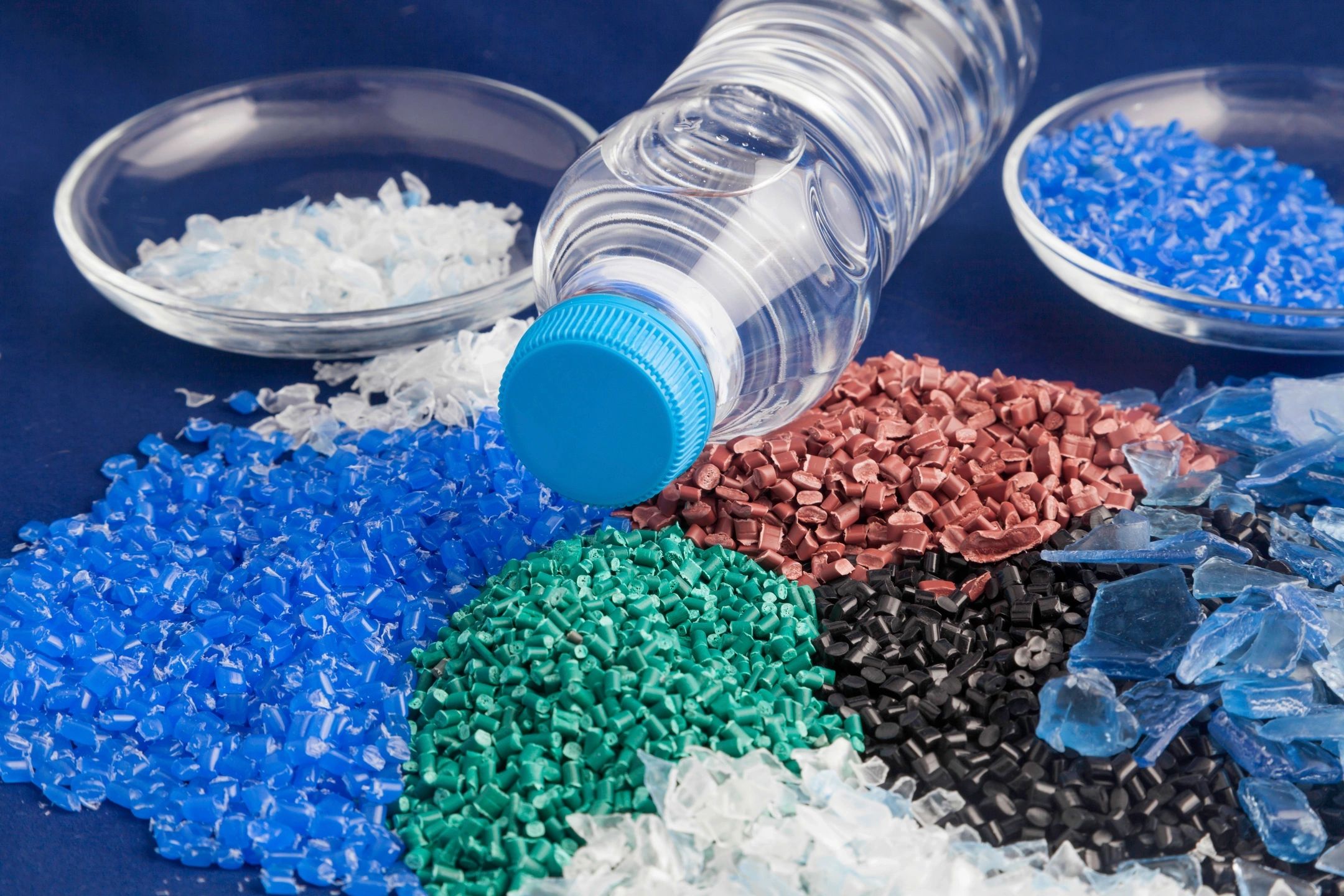There is a 15 year old teen eco-warrior in Georgia that is making a major difference in how we view plastic. Hannah Testa, founder of hannah4change, has been educated thousands of people about the harmful effects of plastic pollution since she was 11. She is particularly focused on single-use disposable plastics such as plastic bags, bottles, and straws because these items we use for convenience are destroying the planet and its precious animals.
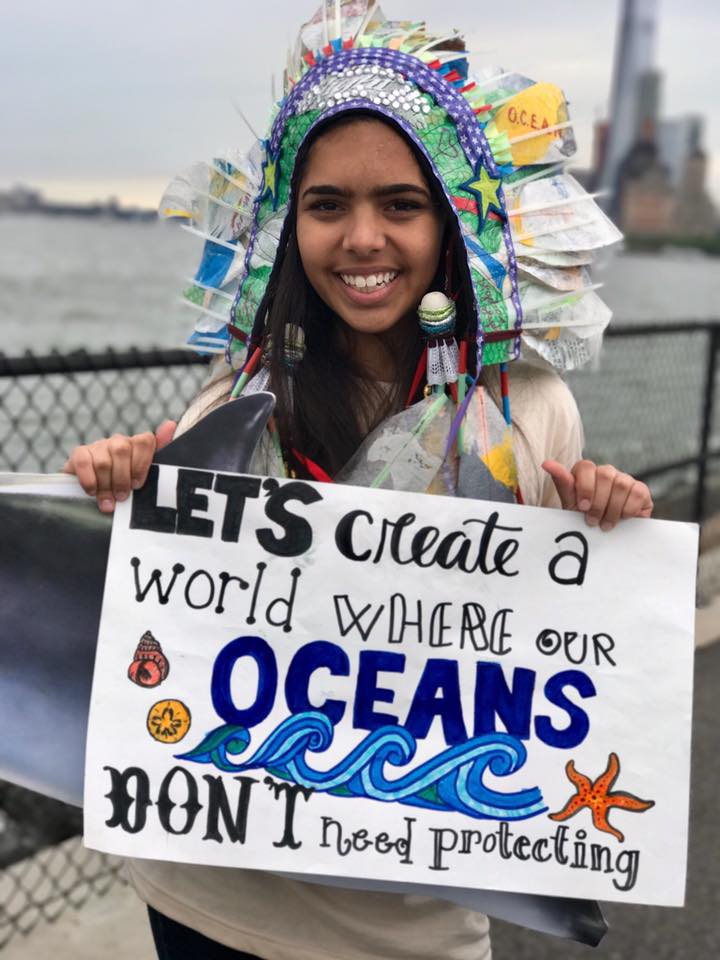
“These products are made to last for hundreds of years, using our precious fossil fuels, but are only used for a few minutes – and they last on our earth virtually forever!”, states Hannah.
Last year, she decided she needed to do more to get her message out to her fellow citizens, so she created Plastic Pollution Awareness Day with her state senator and the rest of the Georgia state senate. That day was such a success that she was able to duplicate the event this year and proclaim this February 15 as Plastic Pollution Awareness Day.
In honor of Plastic Pollution Awareness Day today, Hannah explains 5 common ways you may be destroying the planet – along with practical solutions that can be easily implemented;
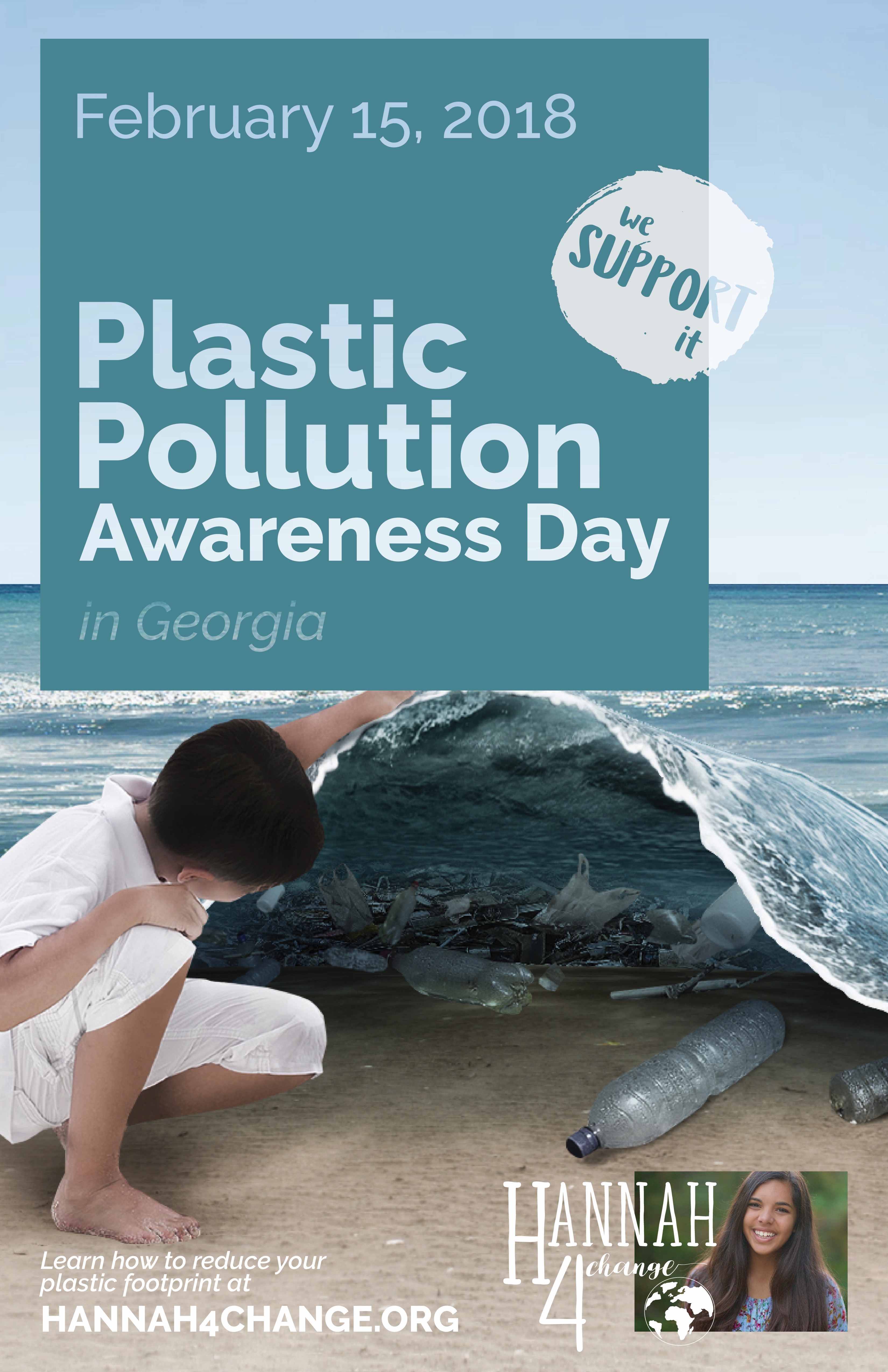
Plastic Straws
You might think “what is the big deal with straws?”, but consider this: Americans use an estimated 500 million plastic straws per day. That’s enough straws to circle the Earth’s circumference 2.5 times! Considering that plastic straws are not recyclable, this is a large volume of plastic that ends up in landfills and beyond. Because of their size and shape, many escape from their trash containers and end up in the environment. And you probably have seen some of the devastating impacts that plastic straws have on animals – the video of the sea turtle with the plastic straw up its nose is very sad – if not horrific – to watch as its rescuers try to remove the straw. Switching to non plastic straws is essential if we want to see our oceans thrive once again!
There are many alternatives to plastic straws, including not using straws at all. If you feel you must have a straw, there are great, long-lasting bio-degradable paper straw alternatives. There are also glass and stainless steel straws that are made by leading companies. So the next time you go to a restaurant, tell your waiter, “no straw, please” (and inform the manager for added impact). And please don’t use the excuse that you don’t like your lips touching the glass – unless you use a straw when you drink beer or wine! Restaurants and other business should get in the act too – if you implement a “straws upon request” policy, you’ll drastically reduce the quantity of plastic straws that are used – which is savings to the bottomline.
Plastic Bags
Have you ever seen pictures of landfill trash? What you’ll see more than anything else is plastic bags. The average American uses around 500 disposable plastic bags per year (some estimates are even higher when you consider all types of plastic bags). Given how lightweight they are, they are a product that can easily escape from a landfill and end up choking our planet. They are also difficult to recycle in most jurisdictions. Given that China recently announced they were refusing to take recyclables from the US and other nations, this will put a burden on municipalities to efficiently dispose of plastic bags and other items.
Once you get in the habit, taking reusable bags to the store is easy and is more practical than plastic bags. You can fill them up and not worry about breaks or tears. What’s more, many stores provide a financial incentive if you bring your own bags to the store. Another alternative is to request paper bags from the store. Many grocery stores have paper bags but they won’t use them unless customers request them. Finally, another option is to not use a bag at all. How often have you purchased one item and had the cashier put it in a plastic bag? Crazy! And when you go to places like Costco and Aldi, you won’t see a plastic bag in sight. Do you complain that your purchased goods end back up in the cart?
Polystyrene
You may not have heard of polystyrene, but you probably use it. This material shows up in coffee cup lids, plastic utensils, restaurant take-away or to-go products, and cups. And one type of polystyrene is styrofoam. Yes, styrofoam is plastic! In addition to the large quantity of polystyrene that is used and ends up in the landfill or in the environment (the EPA estimates Americans use 25 billion polystyrene coffee cups annually), one of the chemicals in this material – styrene – is a known animal carcinogen. These plastics are almost impossible to recycle.
I carry a stainless steel water bottle with me everywhere I go. You can also bring a stainless steel cup – there are some nice insulated ones too – with you. Offices can furnish coffee mugs to their employees rather than stocking their shelves with styrofoam cups. Regarding utensils, instead of taking plastic utensils, I carry (or put in the car) bamboo or stainless steel utensils. Use these products instead of polystyrene!
Plastic bottles
Americans use approximately 35 million plastic water bottles annually, primarily used for convenience. That’s 3 million per hour! And if you include the plastic cap, that’s 6 million plastic products that are getting trashed every hour of every day!
The alternative to plastic bottles? Keep a reusable cup in your bag, or carry around a stainless steel bottle. And just think about how much money you are saving by drinking tap water instead of costly bottled water. And since our federal government seems to love Norway so much these days, let’s follow Norway’s lead by instituting a full take back program for plastic bottles. As a result of this comprehensive program, Norway is recycling 97% of its bottles.
Cigarette butts
Did you know that cigarette butts are made of a type of plastic? Cigarette butts are one of the most common forms of plastic pollution. When I do street cleanups, I find more cigarette butts than any other type of trash. These butts are not biodegradable and are a material the earth cannot digest. What’s possibly worse, they leach toxic chemicals into the earth. Hopefully this gives you yet another reason to stop smoking (or, at the very least, switch to an alternative like this Rite snus)!
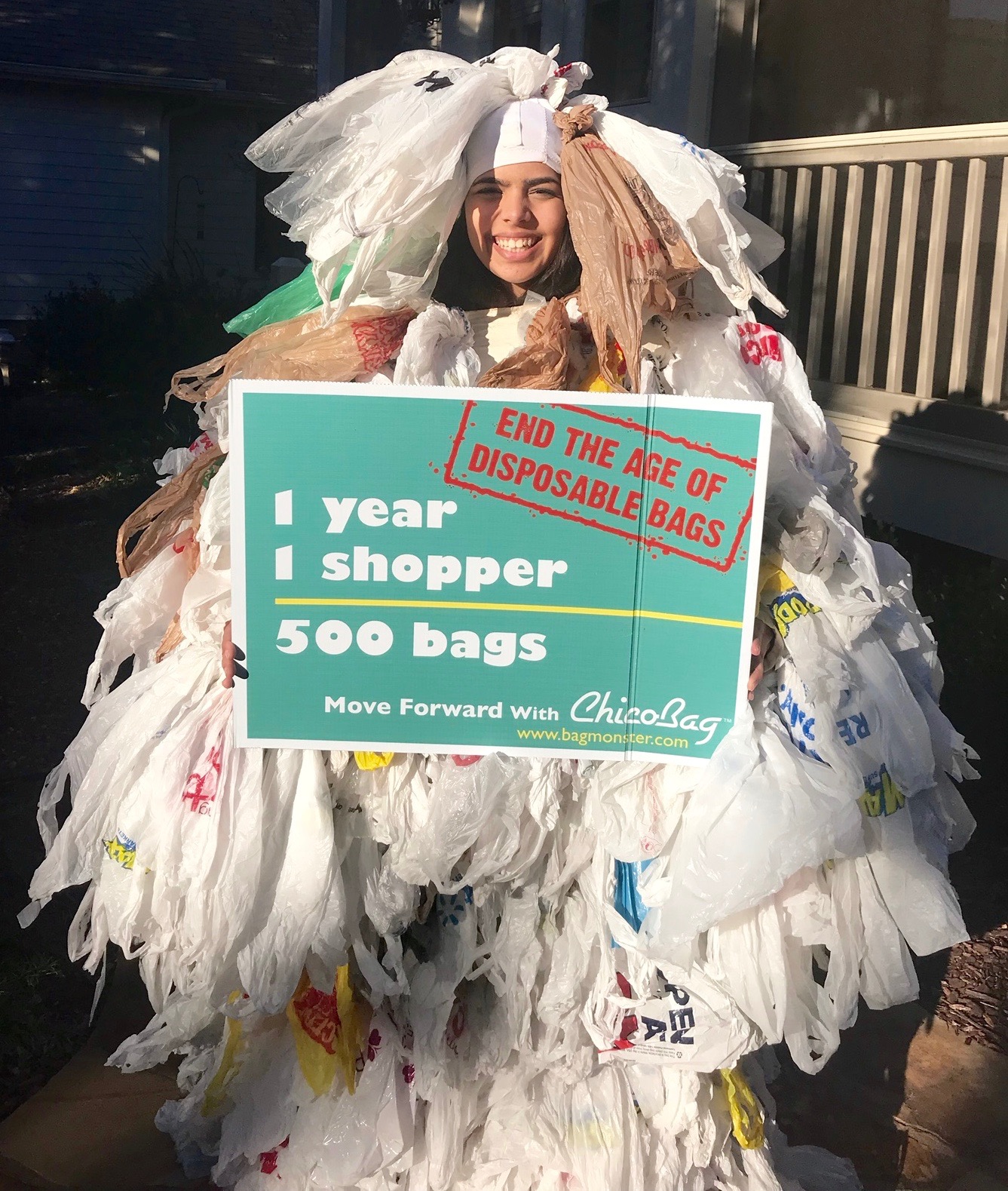
Hannah believes that knowledge is power, and now that you know better, you’ll do better! That’s the essence of Hannah’s Plastic Pollution Awareness Day; through education and awareness we will all make better choices. So go forth and try some of Hannah’s practical alternatives and you’ll see that it is rather easy to save the planet!

